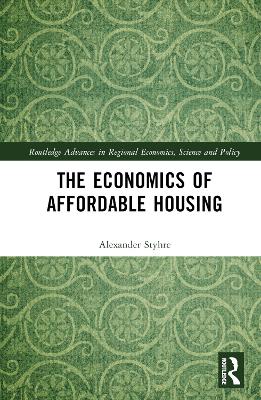Routledge Advances in Regional Economics, Science and Policy
1 total work
The economic system of competitive capitalism has proven to be both resilient and flexible over time and has contributed to the economic welfare of citizens in liberal and coordinated market economies in diverse regions and countries. At the same time, over the entire post-World War II period, there has been a notable endemic shortage of affordable housing in many advanced economies.
This book points at both the causes and the consequences of this circumstance and provides an integrated economic and legal view of how housing production is dependent on housing finance, which, in turn, means that legal conditions and the sovereign state play an active role. Further, the book contributes to the literature from two otherwise partially separated disciplines-housing and urban development studies on the one hand and the institutional centrality of the finance industry in the contemporary economic system on the other. The author asserts that although somewhat assimilated due to the ambitions of policy makers to optimize social and economic welfare for their constituencies, the combining of these two realms of expertise generates many favorable outcomes, but also some costs derived from finance industry instabilities. The book connects theoretical perspectives and provides an empirical explanation for how affordable housing is generated in an actual real world economy context.
The book will be relevant to the work of a number of academic disciplines including economics, government studies, housing policy and urban planning, social geography and law and society.
